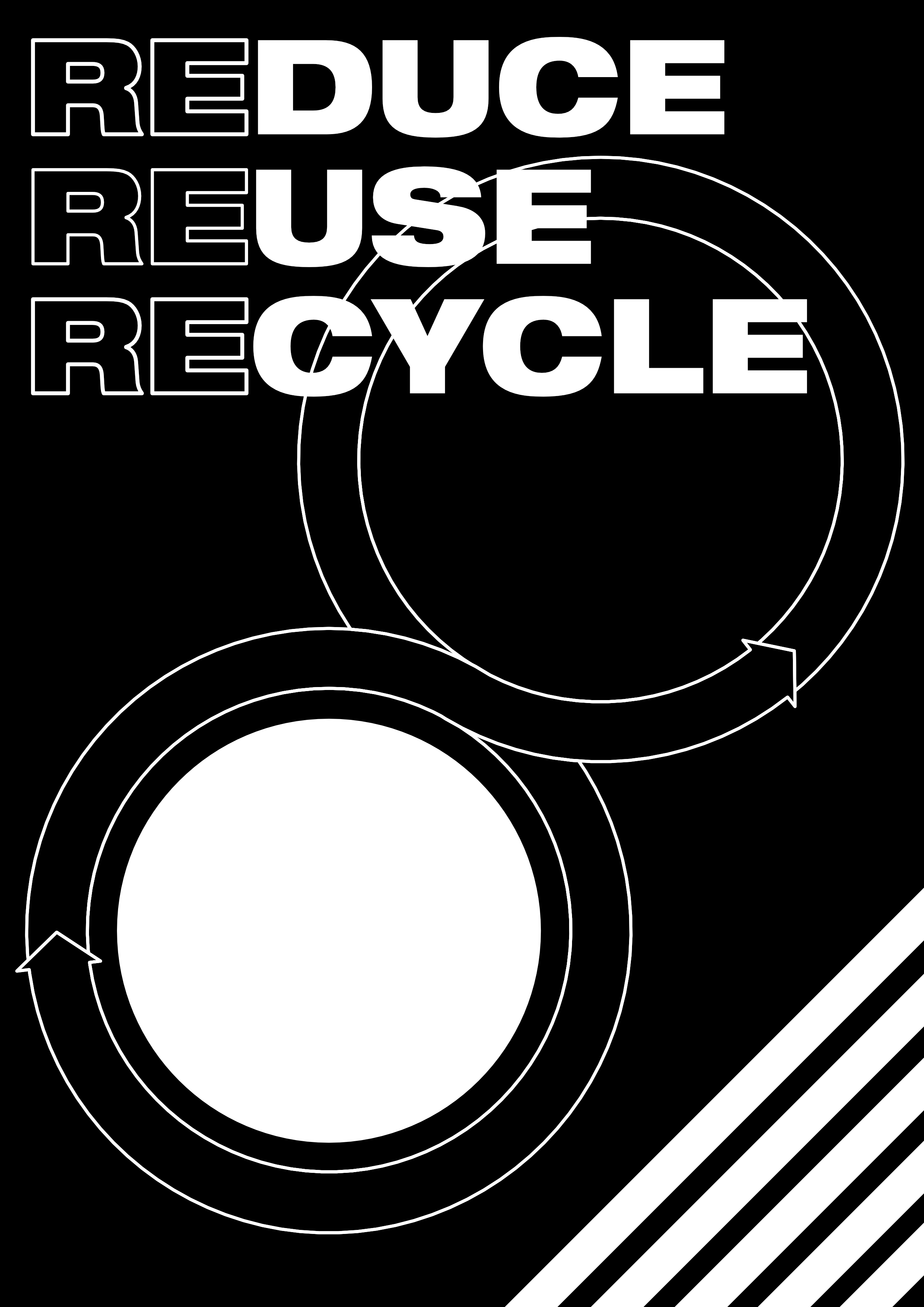
True to our maxim, REDUCE * REUSE * RECYCLE, we take responsibility for our environment.
This is currently done in five steps.
1 REDUCE - Reduction to the essentials.
Our satellites take themselves formally as well as materially back and form the optimal "frame" for your brand. In addition, individual components are repairable or replaceable, so that long-term use is guaranteed and waste is avoided.
2. REUSE - Reusability.
The individualization of the satellites is done only in parts and these (just like the basic structure of the satellites) can be used again and again.
3. RECYCLE - Decomposition into secondary raw materials.
At the end of the "life cycle" of our satellites, they are returned to the material cycle. Besides recycling the original materials into secondary raw materials, we use -where already possible and reasonable- sustainable materials. For example, we use printed textiles made from 100% recycled yarn. The yarn is made from former PET bottles.
In addition to the points of our mission statement already described, we focus on short supply chains through local production "Made in Germany".
We rely on partners and suppliers from the region, because our efficient location, as well as short supply chains are very important to us.
All the companies we call partners have already proven in many joint projects that they provide highly qualified and absolutely reliable services.
Furthermore, at the request of our customers, we create a compensation with so-called "carbon offsetting "* for the resulting emissions.
*Carbon offsetting is a way to reduce the impact of greenhouse gas emissions by offsetting the emissions that result from the production and use of products and services. This is achieved by investing in projects that help reduce or avoid greenhouse gases, such as renewable energy, energy efficiency, reforestation, and forest conservation.
In addition, carbon offsetting can also help raise awareness about climate change and encourage businesses and consumers to make greener choices. It helps reduce dependence on fossil fuels and encourage the development of renewable energy.
Finally, carbon offsetting can also help improve socioeconomic conditions in developing countries by investing in projects that create jobs and strengthen local economies. This can help reduce poverty and improve the quality of life for local people.
Overall, carbon offsetting offers a way to reduce the impact of greenhouse gas emissions while having a positive impact on the environment and society.